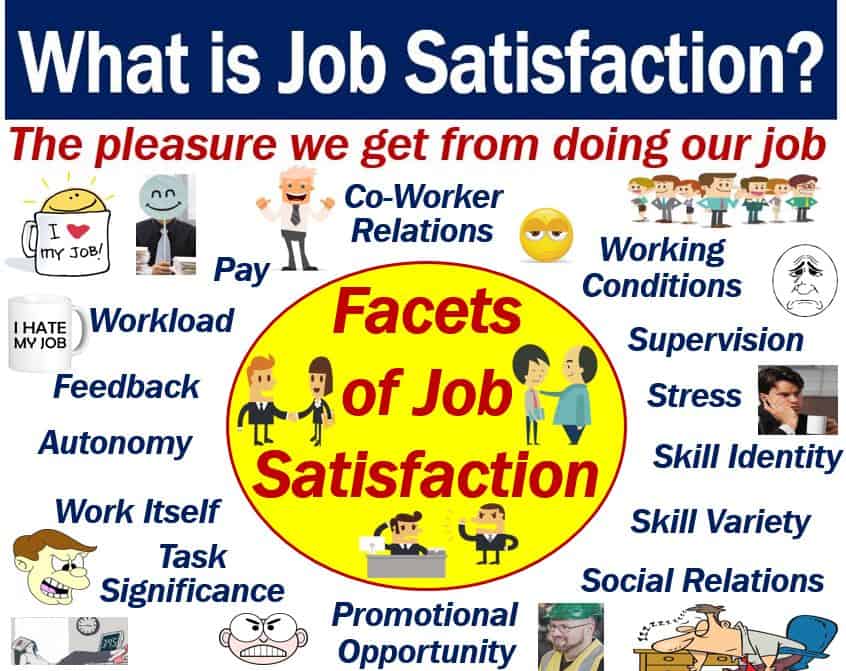Job satisfaction or employee satisfaction is the feeling of pleasure, enjoyment, and fulfillment that workers derive from their job. It is the degree to which somebody knows that their job is worth doing. Job satisfaction also refers to the degree to which people’s jobs give them this feeling.
Put simply; job satisfaction is the pleasure we get from doing our job.
Teaching, for example, will not make you rich, but it will probably give you job satisfaction. You will get that feeling especially if you like to help people learn.
Determining levels of job satisfaction in a company is the job of human resources professionals. Specifically, those carrying out job analyses.
Concept of job satisfaction
The concept of job satisfaction varies considerably.
Some specialists, however, define it as simply how content workers are with their jobs regardless. That is, regardless of whether they like the job or not.
We can measure satisfaction at global level, i.e., whether somebody is content with their job overall. We can also measure it at facet level, i.e., whether somebody is content with different aspects of their job.
Paul E. Spector, an industrial and organizational psychologist at the University of South Florida, listed 14 common facets:
Supervision, Security, Recognition, Promotion Opportunities, Policies and Procedures, Personal Growth, Organization, Nature of the Work, Job Conditions, Fringe Benefits, Coworkers, Communications, and Appreciation.

Cognitive and affective job satisfaction
How we measure job satisfaction varies. For example, affective job satisfaction measures workers’ feelings towards their job.
Cognitive job satisfaction, on the other hand, measures people’s cognitions about their job. In other words, people perceptions, opinions, beliefs, and expectations regarding their employers and their jobs.
Job and life satisfaction
Some studies have found that job satisfaction often goes hand-in-hand with life satisfaction. In other words, those who are content at work enjoy a high level of life satisfaction too. Also, it works both ways. People with a high level of life satisfaction tend to be satisfied with their job.
Other studies, however, found little correlation between job and life satisfaction when the researchers took into account other factors.
